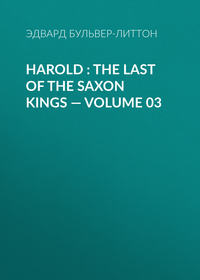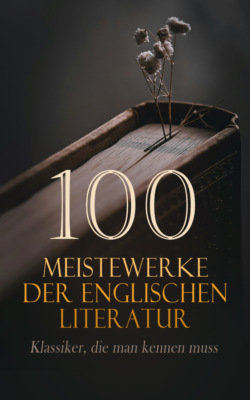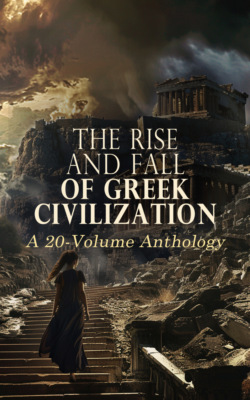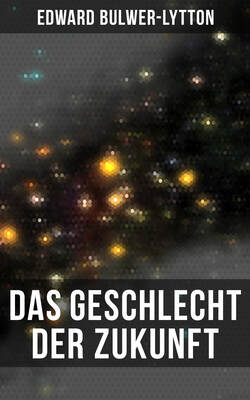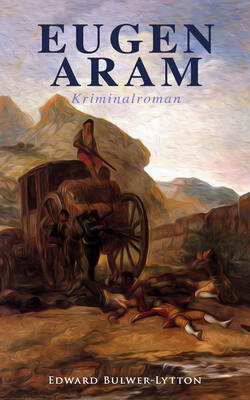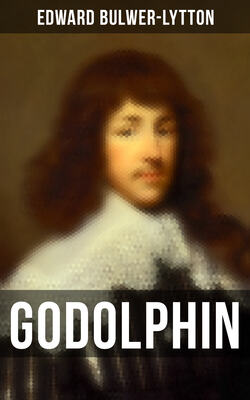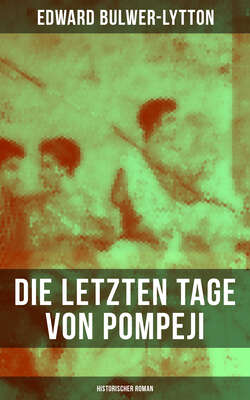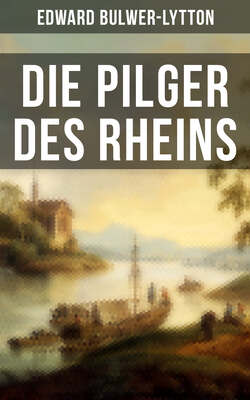Kitabı oku: «Harold : the Last of the Saxon Kings — Volume 03», sayfa 4
CHAPTER V
As Hilda entered the hall, the various idlers accustomed to feed at her cost were about retiring, some to their homes in the vicinity, some, appertaining to the household, to the dormitories in the old Roman villa.
It was not the habit of the Saxon noble, as it was of the Norman, to put hospitality to profit, by regarding his guests in the light of armed retainers. Liberal as the Briton, the cheer of the board and the shelter of the roof were afforded with a hand equally unselfish and indiscriminate; and the doors of the more wealthy and munificent might be almost literally said to stand open from morn to eve.
As Harold followed the Vala across the vast atrium, his face was recognised, and a shout of enthusiastic welcome greeted the popular Earl. The only voices that did not swell that cry, were those of three monks from a neighbouring convent, who choose to wink at the supposed practices of the Morthwyrtha29, from the affection they bore to her ale and mead, and the gratitude they felt for her ample gifts to their convent.
"One of the wicked House, brother," whispered the monk.
"Yea; mockers and scorners are Godwin and his lewd sons," answered the monk.
And all three sighed and scowled, as the door closed on the hostess and her stately guest.
Two tall and not ungraceful lamps lighted the same chamber in which Hilda was first presented to the reader. The handmaids were still at their spindles, and the white web nimbly shot as the mistress entered.
She paused, and her brow knit, as she eyed the work.
"But three parts done?" she said, "weave fast, and weave strong."
Harold, not heeding the maids or their task, gazed inquiringly round, and from a nook near the window, Edith sprang forward with a joyous cry, and a face all glowing with delight—sprang forward, as if to the arms of a brother; but, within a step or so of that noble guest, she stopped short, and her eyes fell to the ground.
Harold held his breath in admiring silence. The child he had loved from her cradle stood before him as a woman. Even since we last saw her, in the interval between the spring and the autumn, the year had ripened the youth of the maiden, as it had mellowed the fruits of the earth; and her cheek was rosy with the celestial blush, and her form rounded to the nameless grace, which say that infancy is no more.
He advanced and took her hand, but for the first time in his life in their greetings, he neither gave nor received the kiss.
"You are no child now, Edith," said he, involuntarily; "but still set apart, I pray you, some remains of the old childish love for Harold."
Edith's charming lips smiled softly; she raised her eyes to his, and their innocent fondness spoke through happy tears.
But few words passed in the short interval between Harold's entrance and his retirement to the chamber prepared for him in haste. Hilda herself led him to a rude ladder which admitted to a room above, evidently added, by some Saxon lord, to the old Roman pile. The ladder showed the precaution of one accustomed to sleep in the midst of peril, for, by a kind of windlass in the room, it could be drawn up at the inmate's will, and, so drawn, left below a dark and deep chasm, delving down to the foundations of the house; nevertheless the room itself had all the luxury of the time; the bedstead was quaintly carved, and of some rare wood; a trophy of arms—though very ancient, sedulously polished—hung on the wall. There were the small round shield and spear of the earlier Saxon, with his vizorless helm, and the short curved knife or saex30, from which some antiquarians deem that the Saxish men take their renowned name.
Edith, following Hilda, proffered to the guest, on a salver of gold, spiced wines and confections; while Hilda, silently and unperceived, waved her seid-staff over the bed, and rested her pale hand on the pillow.
"Nay, sweet cousin," said Harold, smiling, "this is not one of the fashions of old, but rather, methinks, borrowed from the Frankish manners in the court of King Edward."
"Not so, Harold," answered Hilda, quickly turning; such was ever the ceremony due to Saxon king, when he slept in a subject's house, ere our kinsmen the Danes introduced that unroyal wassail, which left subject and king unable to hold or to quaff cup, when the board was left for the bed."
"Thou rebukest, O Hilda, too tauntingly, the pride of Godwin's house, when thou givest to his homely son the ceremonial of a king. But, so served, I envy not kings, fair Edith."
He took the cup, raised it to his lips, and when he placed it on the small table by his side the women had left the chamber, and he was alone. He stood for some minutes absorbed in reverie, and his soliloquy ran somewhat thus:
"Why said the Vala that Edith's fate was inwoven with mine? And why did I believe and bless the Vala, when she so said? Can Edith ever be my wife? The monk-king designs her for the cloister—Woe, and well-a- day! Sweyn, Sweyn, let thy doom forewarn me! And if I stand up in my place and say, 'Give age and grief to the cloister—youth and delight to man's hearth,' what will answer the monks? 'Edith cannot be thy wife, son of Godwin, for faint and scarce traced though your affinity of blood, ye are within the banned degrees of the Church. Edith may be wife to another, if thou wilt,—barren spouse of the Church or mother of children who lisp not Harold's name as their father.' Out on these priests with their mummeries, and out on their war upon human hearts!"
His fair brow grew stern and fierce as the Norman Duke's in his ire; and had you seen him at the moment you would have seen the true brother of Sweyn. He broke from his thoughts with the strong effort of a man habituated to self-control, and advanced to the narrow window, opened the lattice, and looked out.
The moon was in all her splendour. The long deep shadows of the breathless forest chequered the silvery whiteness of open sward and intervening glade. Ghostly arose on the knoll before him the grey columns of the mystic Druid,—dark and indistinct the bloody altar of the Warrior god. But there his eye was arrested; for whatever is least distinct and defined in a landscape has the charm that is the strongest; and, while he gazed, he thought that a pale phosphoric light broke from the mound with the bautastein, that rose by the Teuton altar. He thought, for he was not sure that it was not some cheat of the fancy. Gazing still, in the centre of that light there appeared to gleam forth, for one moment, a form of superhuman height. It was the form of a man, that seemed clad in arms like those on the wall, leaning on a spear, whose point was lost behind the shafts of the crommell. And the face grew in that moment distinct from the light which shimmered around it, a face large as some early god's, but stamped with unutterable and solemn woe. He drew back a step, passed his hand over his eyes, and looked again. Light and figure alike had vanished; nought was seen save the grey columns and dim fane. The Earl's lip curved in derision of his weakness. He closed the lattice, undressed, knelt for a moment or so by the bedside, and his prayer was brief and simple, nor accompanied with the crossings and signs customary in his age. He rose, extinguished the lamp, and threw himself on the bed.
The moon, thus relieved of the lamp-light, came clear and bright through the room, shone on the trophied arms, and fell upon Harold's face, casting its brightness on the pillow on which the Vala had breathed her charm. And Harold slept—slept long—his face calm, his breathing regular: but ere the moon sunk and the dawn rose the features were dark and troubled, the breath came by gasps, the brow was knit, and the teeth clenched.
NOTES
NOTE (A)
There are various accounts in the Chroniclers as to the stature of William the First; some represent him as a giant, others as of just or middle height. Considering the vulgar inclination to attribute to a hero's stature the qualities of the mind (and putting out of all question the arguments that rest on the pretended size of the disburied bones—for which the authorities are really less respectable than those on which we are called upon to believe that the skeleton of the mythical Gawaine measured eight feet), we prefer that supposition, as to the physical proportions, which is most in harmony with the usual laws of Nature. It is rare, indeed, that a great intellect is found in the form of a giant.
NOTE (B)
Game Laws before the Conquest.
Under the Saxon kings a man might, it is true, hunt in his own grounds, but that was a privilege that could benefit few but thegns; and over cultivated ground or shire-land there was not the same sport to be found as in the vast wastes called forest-land, and which mainly belonged to the kings.
Edward declares, in a law recorded in a volume of the Exchequer, "I will that all men do abstain from hunting in my woods, and that my will shall be obeyed under penalty of life."31
Edgar, the darling monarch of the monks, and, indeed, one of the most popular of the Anglo-Saxon kings, was so rigorous in his forest-laws that the thegns murmured as well as the lower husbandmen, who had been accustomed to use the woods for pasturage and boscage. Canute's forest-laws were meant as a liberal concession to public feeling on the subject; they are more definite than Edgar's, but terribly stringent; if a freeman killed one of the king's deer, or struck his forester, he lost his freedom and became a penal serf (white theowe)— that is, he ranked with felons. Nevertheless, Canute allowed bishops, abbots, and thegns to hunt in his woods—a privilege restored by Henry III. The nobility, after the Conquest, being excluded from the royal chases, petitioned to enclose parks, as early even as the reign of William I.; and by the time of his son, Henry I., parks became so common as to be at once a ridicule and a grievance.
NOTE (C)
Belin's Gate.
Verstegan combats the Welsh antiquaries who would appropriate this gate to the British deity Bal or Beli; and says, if so, it would not have been called by a name half Saxon, half British, gate (geat) being Saxon; but rather Belinsport than Belinsgate. This is no very strong argument; for, in the Norman time, many compound words were half Norman, half Saxon. But, in truth, Belin was a Teuton deity, whose worship pervaded all Gaul; and the Saxons might either have continued, therefore, the name they found, or given it themselves from their own god. I am not inclined, however, to contend that any deity, Saxon or British, gave the name, or that Billing is not, after all, the right orthography. Billing, like all words ending in ing, has something very Danish in its sound; and the name is quite as likely to have been given by the Danes as by the Saxons.
NOTE (D)
The question whether or not real vineyards were grown, or real wine made from them, in England has been a very vexed question among the antiquaries. But it is scarcely possible to read Pegge's dispute with Daines Barrington in the Archaeologia without deciding both questions in the affirmative.—See Archaeol. vol. iii. p. 53. An engraving of the Saxon wine-press is given in STRUTT's Horda.
Vineyards fell into disuse, either by treaty with France, or Gascony falling into the hands of the English. But vineyards were cultivated by private gentlemen as late as 1621. Our first wines from Bordeaux— the true country of Bacchus—appear to have been imported about 1154, by the marriage of Henry II. with Eleanor of Aquitaine.
NOTE (E)
Lanfranc, the first Anglo-Norman Archbishop of Canterbury.
Lanfranc was, in all respects, one of the most remarkable men of the eleventh century. He was born in Pavia, about 1105. His family was noble—his father ranked amongst the magistrature of Pavia, the Lombard capital. From his earliest youth he gave himself up, with all a scholar's zeal, to the liberal arts, and the special knowledge of law, civil and ecclesiastical. He studied at Cologne, and afterwards taught and practised law in his own country. "While yet extremely young," says one of the lively chroniclers, "he triumphed over the ablest advocates, and the torrents of his eloquence confounded the subtlest rhetorician." His decisions were received as authorities by the Italian jurisconsults and tribunals. His mind, to judge both by his history and his peculiar reputation (for probably few, if any, students of our day can pretend to more than a partial or superficial acquaintance with his writings), was one that delighted in subtleties and casuistical refinements; but a sense too large and commanding for those studies which amuse but never satisfy the higher intellect, became disgusted betimes with mere legal dialectics. Those grand and absorbing mysteries connected with the Christian faith and the Roman Church (grand and absorbing in proportion as their premises are taken by religious belief as mathematical axioms already proven) seized hold of his imagination, and tasked to the depth his inquisitive reason. The Chronicle of Knyghton cites an interesting anecdote of his life at this, its important, crisis. He had retired to a solitary spot, beside the Seine, to meditate on the mysterious essence of the Trinity, when he saw a boy ladling out the waters of the river that ran before him into a little well. His curiosity arrested, he asked "what the boy proposed to do?" The boy replied, "To empty yon deep into this well." "That canst thou never do," said the scholar. "Nor canst thou," answered the boy, "exhaust the deep on which thou dost meditate into the well of thy reason." Therewith the speaker vanished, and Lanfranc, resigning the hope to achieve the mighty mystery, threw himself at once into the arms of faith, and took his refuge in the monastery of Bec.
The tale may be a legend, but not an idle one. Perhaps he related it himself as a parable, and by the fiction explained the process of thought that decided his career. In the prime of his manhood, about 1042, when he was thirty-seven years old, and in the zenith of his scholarly fame, he professed. The Convent of Bee had been lately founded, under Herluin, the first abbot; there Lanfranc opened a school, which became one of the most famous throughout the west of Europe. Indeed, under the Lombard's influence, the then obscure Convent of Bee, to which the solitude of the site and the poverty of the endowment allured his choice, grew the Academe of the age. "It was," says Oderic, in his charming chronicle, "it was under such a master that the Normans received their first notions of literature; from that school emerged the multitude of eloquent philosophers who adorned alike divinity and science. From France, Gascony, Bretagne, Flanders, scholars thronged to receive his lessons."32
At first, as superficially stated in the tale, Lanfranc had taken part against the marriage of William with Matilda of Flanders—a marriage clearly contrary to the formal canons of the Roman Church, and was banished by the fiery Duke; though William's displeasure gave way at "the decent joke" (jocus decens), recorded in the text. At Rome, however, his influence, arguments, and eloquence were all enlisted on the side of William: and it was to the scholar of Pavia that the great Norman owed the ultimate sanction of his marriage, and the repeal of the interdict that excommunicated his realm.33
At Rome he assisted in the council held 1059 (the year wherein the ban of the Church was finally and formally taken from Normandy), at which the famous Berenger, Archdeacon of Angers (against whom he had waged a polemical controversy that did more than all else to secure his repute at the Pontifical Court), abjured "his heresies" as to the Real Presence in the sacrament of the Eucharist.
In 1062, or 1063, Duke William, against the Lombard's own will (for Lanfranc genuinely loved the liberty of letters more than vulgar power), raised him to the abbacy of St. Stephen of Caen. From that time, his ascendancy over his haughty lord was absolute. The contemporary historian (William of Poitiers), says that "William respected him as a father, venerated him as a preceptor, and cherished him as a brother or son." He confided to him his own designs; and committed to him the entire superintendence of the ecclesiastical orders throughout Normandy. Eminent no less for his practical genius in affairs, than for his rare piety and theological learning, Lanfranc attained indeed to the true ideal of the Scholar; to whom, of all men, nothing that is human should be foreign; whose closet is but a hermit's cell, unless it is the microcosm that embraces the mart and the forum; who by the reflective part of his nature seizes the higher region of philosophy—by the energetic, is attracted to the central focus of action. For scholarship is but the parent of ideas; and ideas are the parents of action.
After the conquest, as prelate of Canterbury, Lanfranc became the second man in the kingdom—happy, perhaps, for England had he been the first; for all the anecdotes recorded of him show a deep and genuine sympathy with the oppressed population. But William the King of the English escaped from the control which Lanfranc had imposed on the Duke of the Normans. The scholar had strengthened the aspirer; he could only imperfectly influence the conqueror.
Lanfranc was not, it is true, a faultless character. He was a priest, a lawyer, and a man of the world—three characters hard to amalgamate into perfection, especially in the eleventh century. But he stands in gigantic and brilliant contrast to the rest of our priesthood in his own day, both in the superiority of his virtues, and in his exemption from the ordinary vices. He regarded the cruelties of Odo of Bayeux with detestation, opposed him with firmness, and ultimately, to the joy of all England, ruined his power. He gave a great impetus to learning; he set a high example to his monks, in his freedom from the mercenary sins of their order; he laid the foundations of a powerful and splendid church, which, only because it failed in future Lanfrancs, failed in effecting the civilisation of which he designed it to be the instrument. He refused to crown William Rufus, until that king had sworn to govern according to law and to right; and died, though a Norman usurper, honoured and beloved by the Saxon people.
Scholar, and morning star of light in the dark age of force and fraud, it is easier to praise thy life, than to track through the length of centuries all the measureless and invisible benefits which the life of one scholar bequeaths to the world—in the souls it awakens—in the thoughts it suggests!34
Morthwyrtha, worshipper of the dead.
[Закрыть]
It is a disputed question whether the saex of the earliest Saxon invaders was a long or short curved weapon,—nay, whether it was curved or straight; but the author sides with those who contend that it was a short, crooked weapon, easily concealed by a cloak, and similar to those depicted on the banner of the East Saxons.
[Закрыть]
Thomson's Essay on Magna Charta.
[Закрыть]
Orderic. Vital. lib. 4.
[Закрыть]
The date of William's marriage has been variously stated in English and Norman history, but is usually fixed in 1051-2. M. Pluquet, however, in a note to his edition of the "Roman de Rou," says that the only authority for the date of that marriage is in the Chronicle of Tours, and it is there referred to 1053. It would seem that the Papal excommunication was not actually taken off till 1059; nor the formal dispensation for the marriage granted till 1063.
[Закрыть]
For authorities for the above sketch, and for many interesting details of Lanfranc's character, see Orderic. Vital. Hen. de Knyghton, lib. ii. Gervasius; and the life of Lanfranc, to be found in the collection of his Works, etc.
[Закрыть]
